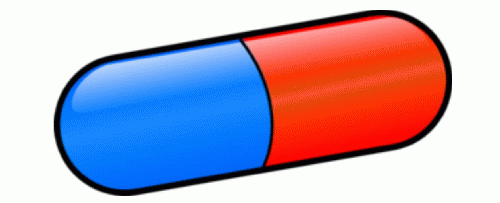Even during the recession of 2009 with people losing their homes and jobs, Pharma remained the nation's third most profitable sector. Now, with its recent five-digit Hep C drugs and six-digit cancer drugs, it is doing even better. (Though Pharma companies still want to incorporate overseas to dodge U.S. taxes.)
How is Pharma able to thrive when other industries are challenged? Here are some of the tricks up its sleeve.

Pharma uses these dirty tricks to stay a Wall Street darling
(Image by Martha Rosenberg) Details DMCA
I. Astroturf Patients
Pharma promotes fake patient advocacy groups to lobby for its interests. These front groups often push the FDA to approve an expensive drug that has acceptable, cheaper alternatives. Or, they'll try to prevent Medicaid from switching to the less pricey drug. One of the largest faux groups, National Alliance on Mental Illness (NAMI), was investigated by Sen. Charles Grassley for undisclosed Pharma links. He found the 10 top NAMI state chapters received $3.84 million from Pharma in less than five years.
2. Cheating the Government
Pharma is a top defrauder of the federal government. "Desperate to maintain their high margin of profit in the face of a dwindling number of important new drugs," Pharma illegally promotes unapproved uses of drugs and deliberately overcharges Medicare and Medicaid, said Dr. Sidney Wolfe, former director of Public Citizen's Health Research Group. Thirty-one major drug companies to date including Pfizer, Eli Lilly, Johnson & Johnson, Novartis, Forest, Amgen and Allergan, have entered into settlements for "off-label marketing"----selling their drugs for any indications they want without FDA approval.
3. Overseas Adventurism
As Pharma increasingly eyes poorer countries for new markets and cheaper manufacturing it also eyes them for cheaper clinical trials. In 1996, 11 Nigerian children died in trials testing Pfizer's not-yet-approved antibiotic Trovan. While Pfizer paid the Nigerian government and state of Kano millions in a settlement, documents released by Wikileaks show that Pfizer tried to extort Nigeria's former attorney general to drop the lawsuits. Trovan was withdrawn from U.S. markets in 2001 for liver toxicity, though "safety signals" may have appeared sooner.
4. Duping Institutional Review Boards
Institutional review boards or IRBs are supposed to oversee clinical trials to catch unsafe drugs and injuries to subjects. Sadly, they are increasingly for-profit and "for sale" as they are increasingly paid by those who hire them. Consider this: Congress and General Accountability Office sting conducted on a Colorado review board. When asked to oversee a study of Adhesiabloc, a product designed to reduce scar tissue after surgery, Coast Independent Review Board agreed to oversee the study though neither the drug or the developer or lead researcher existed. Just good investigating, IRB?
5. FDA Foreplay
A sneaky way Pharma tries to get FDA to smile on a drug's approval is to float the drug directly to the public so it can demonstrate "demand" to the FDA. Boehringer-Ingelheim tried the tactic in selling flibanserin, a medication for "hypoactive sexual desire disorder" (HSDD) using TV personality Lisa Rinna in a campaign called "Sex Brain Body: Make the Connection." The drug was eventually sold to Sprout Pharmaceuticals but despite the hype, there are few takers. A new analysis of the drug's clinical trial data wrote Forbes "claims that the drug resulted in only one added sexually satisfying encounter every two months, less than originally thought."
(Note: You can view every article as one long page if you sign up as an Advocate Member, or higher).





